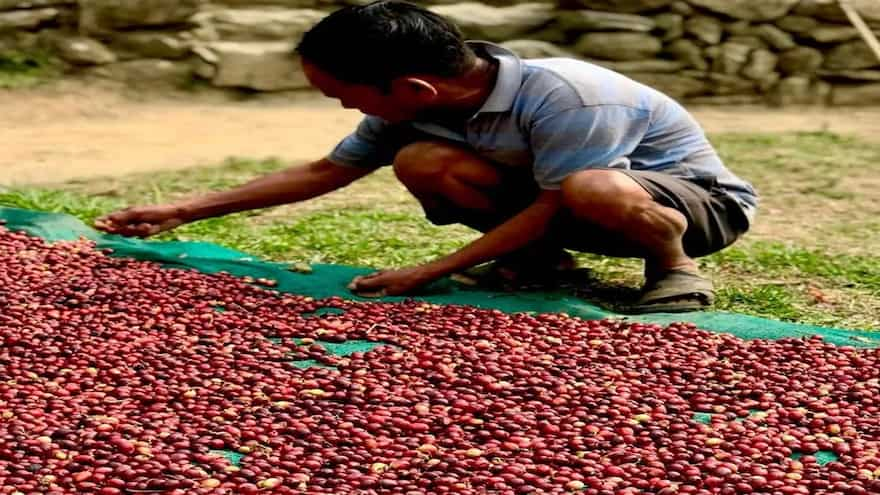For ages, the North Eastern part of India has been synonymous with tea while coffee has largely remained to be associated with Southern states like Kerala, Tamil Nadu, and Karnataka. However, as the Indian economy has been opening, a silent coffee storm is brewing in North East, with the expansion of cafes, government-backed guilds, and organic farmers.
Coffee beans grown by roasters like Nagaland’s Ete Coffee, Darjeeling Altura, Meghalaya’s Smoky Falls, and Himalayan Coffee have been reaching out to local coffee cafes in the area and even exported to foreign countries. Recently, Himalayan coffee has introduced local Darjeeling artisan coffee which is freshly roasted by Bermiok Coffee Company. This is special because this coffee is made in small batches with the participation of local small farmers of the region. Besides, ample artisanal coffee shops have started flourishing in Kohima, Shilong, Gangtok, Darjeeling, Siliguri, Guwahati, Imphal, Tawang, and Aizawl.
As per a report published in The Hindu, the Assam Plantation Crops Development Corporation Ltd had started a coffee plantation on a large area leased at a village near Haflong in the 1990s and then handed it over to the villagers to give them a source of income. But they couldn’t continue this for a long time as the people were not used to growing coffee as a staple. Though, some opted for it and started growing coffee locally.

Image credits: Instagram/himcoffeetea
Though coffee is said to have been brought by Baba Budan in the 16th century, it primarily gained popularity in India somewhere around the 19th century. As per some sources, the earliest farming in the Northeast is mentioned in the book ‘Coffee cultivation in Khasi Hills of 1908'. After the Coffee Board’s initiative, the total coffee cultivation area in North East reached over 4600.26 ha with 1390.21 ha of coffee-bearing area yielding an average annual 150 metric tonnes of clean coffee, as per a report published in The Hindu.
Many people still don’t know about the mushrooming coffee cultivation in North East, and some have started learning about it and giving a positive response. Though people are still preferring to source coffee from South India because it’s much cheaper, North Eastern coffee still has a long way to go.


